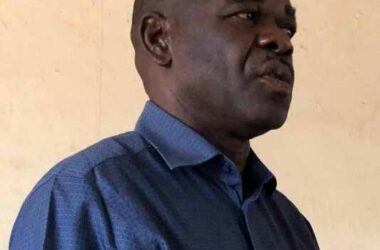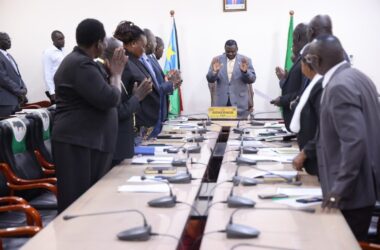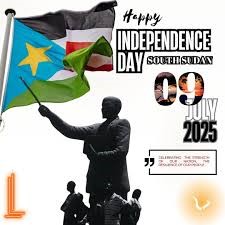By Gladys Fred Kole
Stakeholders in the national constitution-making process have presented a list of nominees for the reconstitution of the National Constitutional Review Committee (NCRC).
Civil society, women, youth, faith groups, academia, eminent personalities, media, People with disabilities, professionals, business community, ethnic minorities, workers’ unions, IDPS, and refugees are inclusive.
Stakeholders’ representation and participation is provided for in the South Sudan Constitution Making Process Act, 2022, with 25 slots out of the 57 members of the constitutional review committee, proposed.
CEPO’s executive director, Mr. Edmond Yakani, expressed gratitude for the progress, viewing it as a positive response to a previous advocacy.
He recalled the civil society urging the presidency to ensure reconstitution of National Constitutional Review Committee by the month of June.
“I am impressed that we have reached a level where we have a few positive indicators that the constitutional review committee is going to be reconstituted.
Yakani urged the citizens to embrace this opportunity of the constitutional making process as a final nonviolent way of bringing “democracy” to the country.
The constitution-making process is the biggest business for the country in terms of shaping the image of the state and the system of governance, including frameworks on how to hold leaders accountable.
“We have finished selecting our 25 seats, and on Tuesday, June 6, 2023, we met with the representative of the high level to officially hand over our names in order to see that we respect the law,” said Yakani.
According to Yakani, the civil society or stakeholders need to undergo an orientation by the end of this month to understand the Constitutional Making Process Act 2022.
He observed that stakeholders can not engage in the constitutional making without understanding the law that defines how the process will look like.
Meanwhile, Mawut Luis, a representative of the constituency of people with disabilities (PWDs) said that this step means a lot to the people in his category.
“This is important national process that has the potential to determine how South Sudan will look like in the future, as we know that good countries are those that have good laws,” he noted.
“It’s crucial to reflect not only on the rights of persons with disabilities but also ensure that our country operates within the rule of law, protects and ensures every citizen lives with dignity,” Mawut hinted.
He further explained that people with disabilities deserve to be informed regarding the current content and how the upcoming constitution should embody their aspirations.
He noted that aspirations of PWDs can be captured by giving them proper information as to what the process is all about and how it will be able to reflect their rights so that they can make informed decisions.



